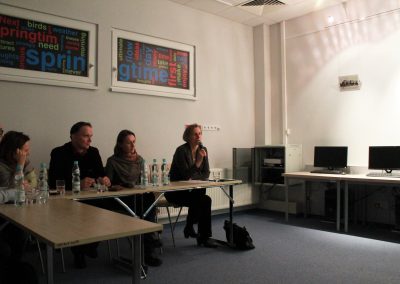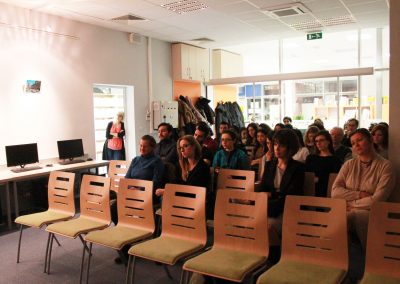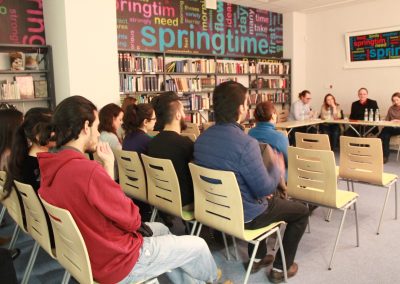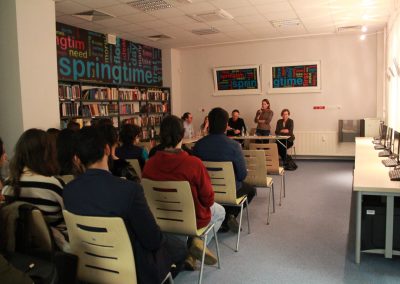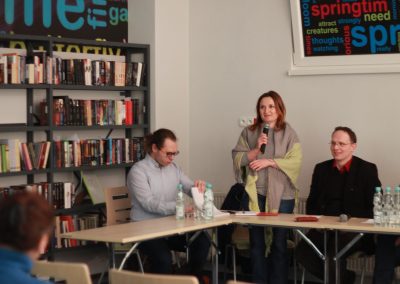On Wednesday we met in the Municipal Library Fil. 4 to participate in the debate entitled Gender ideology(ies): Man and woman – different by nature, inequal by society? We tried to find the answer to this question with our four guests: sociologists Borys Cymbrowski and Anna Czerner, philologist Katarzyna Molek-Kozakowska and biologist Elżbieta Pogoda.
We were aware that for most people the term gender is unfamiliar or even unfriendly, especially when someone is not a philologist or a social researcher, so we started with the basic questions: what gender is, how it exists in our respective fields of studies, and if there exists gender ideology. We can say that gender in general is about social consequences of being men, women or the others, because in the opinion of Elżbieta Pogoda even from a biological point of view there are more than only two sexes. And there is no evidence that one sex has an advantage over another.
In Polish media we encounter some false beliefs about the meaning of the word “gender”. But as Borys Cymbrowski mentioned it is a problem of confusion of nature with culture, because in the Polish language we have only one word (płeć) for gender and for sex. So some commentators confuse biological meaning with the cultural one. They accuse gender scholars of promoting a dangerous ideology which tries to convince people to choose their sex. As Anna Czerner said, the truth is that in the social sciences gender was a neutral category to analyse the relations between people in society, but unfortunately some institutions and politicians took one of the least popular topics in gender studies and used it as a basis to create and apply gender ideology as a political tool.
After that we focused mostly on language aspects within gender issues. Katarzyna Molek-Kozakowska indicated that for her it was easier to introduce herself in English than in Polish, because in Polish most names of academic professions have only a masculine gender, or even if it has a female gender, masculine forms sound more serious and more prestigious. But language is not a constant phenomenon – it is changing all the time. Twenty years ago we considered some female forms of words as strange, but today we take them for granted. We concluded that it is important to include more women-related forms to language, and it is one of the main catalysts of social changes in the public sphere.
We are really glad we could discuss it with you and with the citizens of Opole. We would like to thank you all for your presence and participation, and we hope to see you soon during another discussion. The aim of the whole debate was to clarify a little the problem of gender, but two hours is a short time when you are discussing such an important and complicated topic – so we treat this meeting only as a start. The debate is still open.
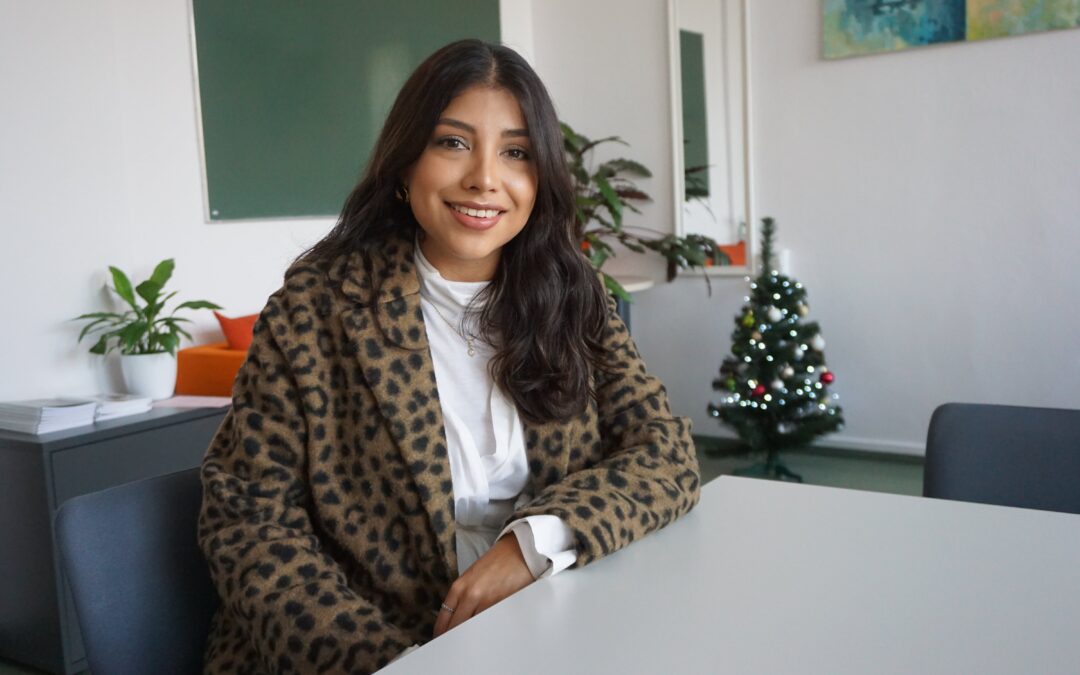
Meet Jazmin – first student from Ecuador at our university
Jazmin Del Salto - first-year student at Master of Liberal Arts program In 2020 a record number of international students was accepted to the University of Opole. Around 380 students from all over the world have started their Bachelor's and Master's studies at our...

Competition for the best foreign student in Poland
We are pleased to share with you the information from Fundacja Edukacyjna Perspektywy (Educational Foundation Perspectives) which is looking for the best foreign student in Poland: Until 20.01.2021. you can send the names of candidates for the INTERSTUDENT which is...

Registration for foreign language courses
Dear Students,We would like to remind you about registration for foreign language courses: Registration for students of II and III year is open until tomorrow – 12.01.21. Registration for students of I year begins on 13.01.21. How to register: Log in to your usosweb...

Merry Christmas!
Dear Students, We are pleased to share with you the Chrsitmas and New Year’s wishes from the Rector of the University of Opole: 'I would like to wish you healthy and pieceful Christmas which will be fulfilled with hope that we can meet each other next year in a...

Erasmus: María from Spain
Today, María from Spain would like to tell us about her experience in Opole during Erasmus + Her name is María Cano Toro. She is from a village close to Málaga in Spain. María is 21 years old and she's been studying to become a teacher of children between 6 and 12...
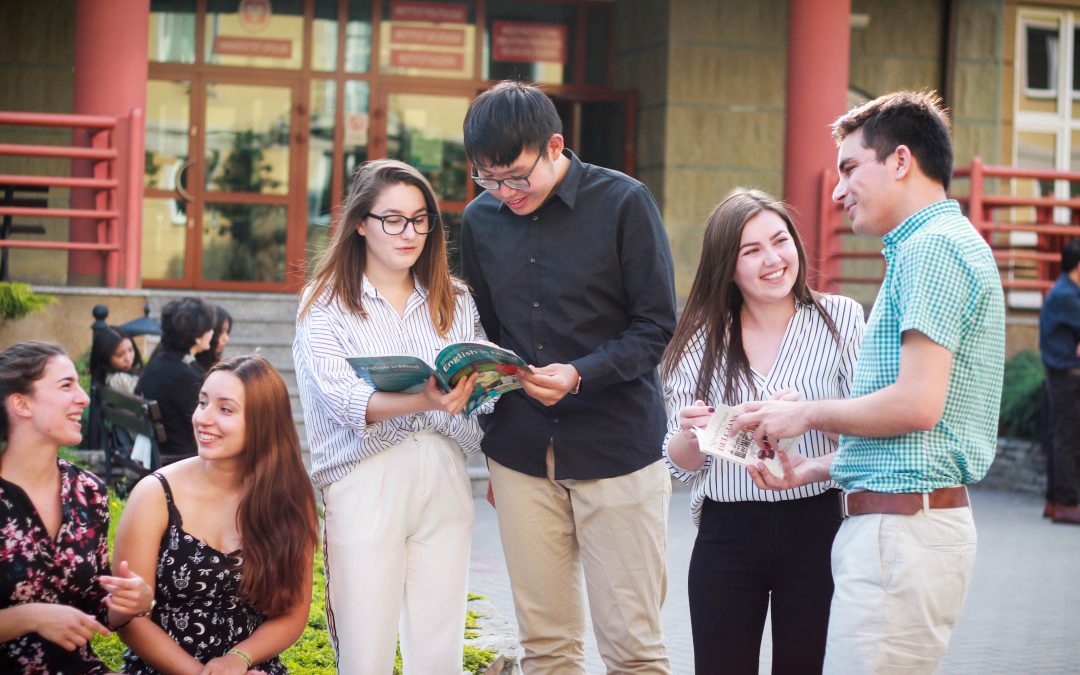
Short-term mobilities within FORTHEM
FORTHEM aims to open up new possibilities for students to travel and study in these different universities. Between 27th October and 29th November 2020, students from all of the alliance universities are invited to apply for short-term mobility in 2021. Two new...
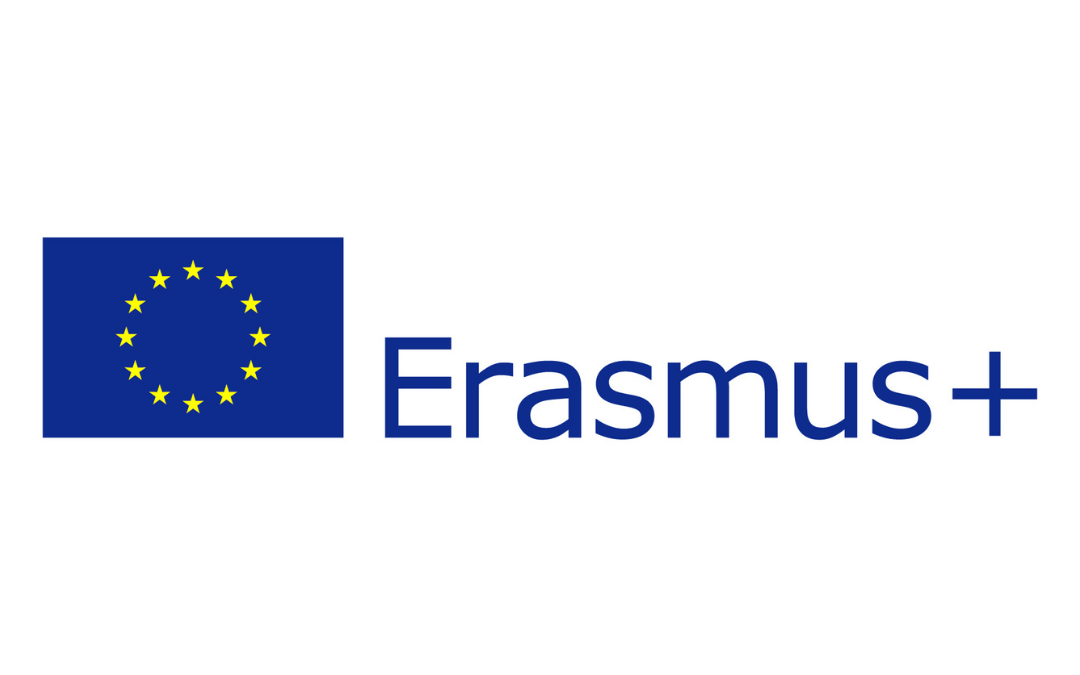
Visiting Erasmus+ office
Dear students, Drodzy Studenci, due to the epidemic situation in Poland, before coming to Erasmus+ office, please write us an email on erasmus@uni.opole.pl or call us (+48 77 452 73 53, +48 77 452 73 52) in order to make an appointment. Briefly describe your case...
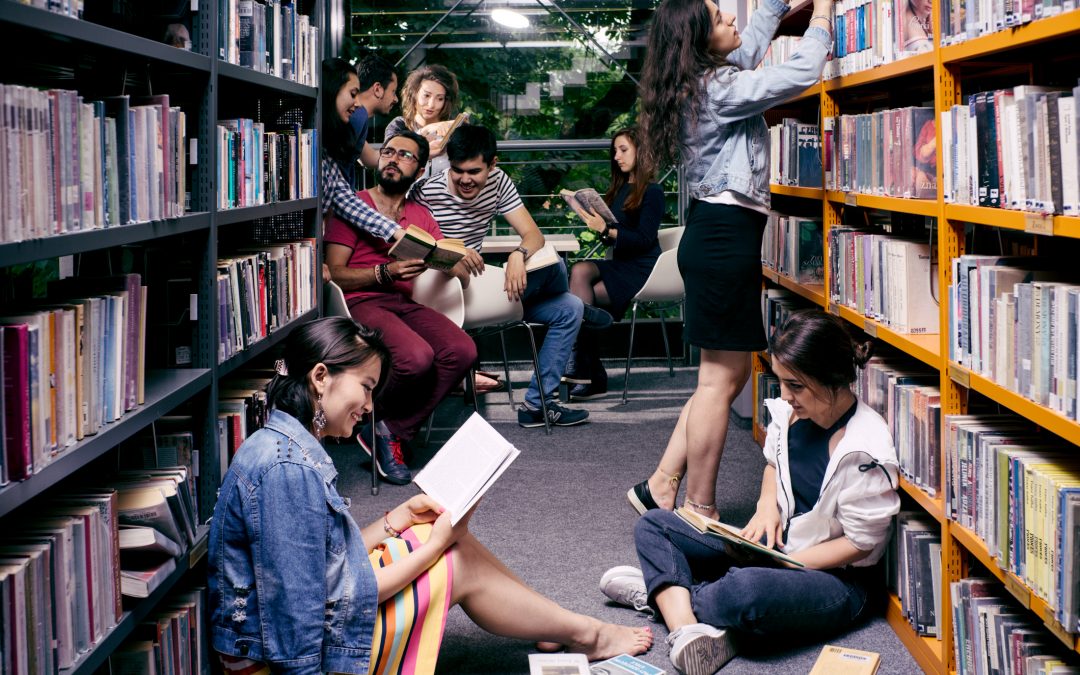
Student ID card
Dear Students, At the begging of the academic year, each first-year student should get an Electronic Student ID card. This card serves as a traditional student ID card as well as a library card. Your student ID will not only confirm your affiliation to the...
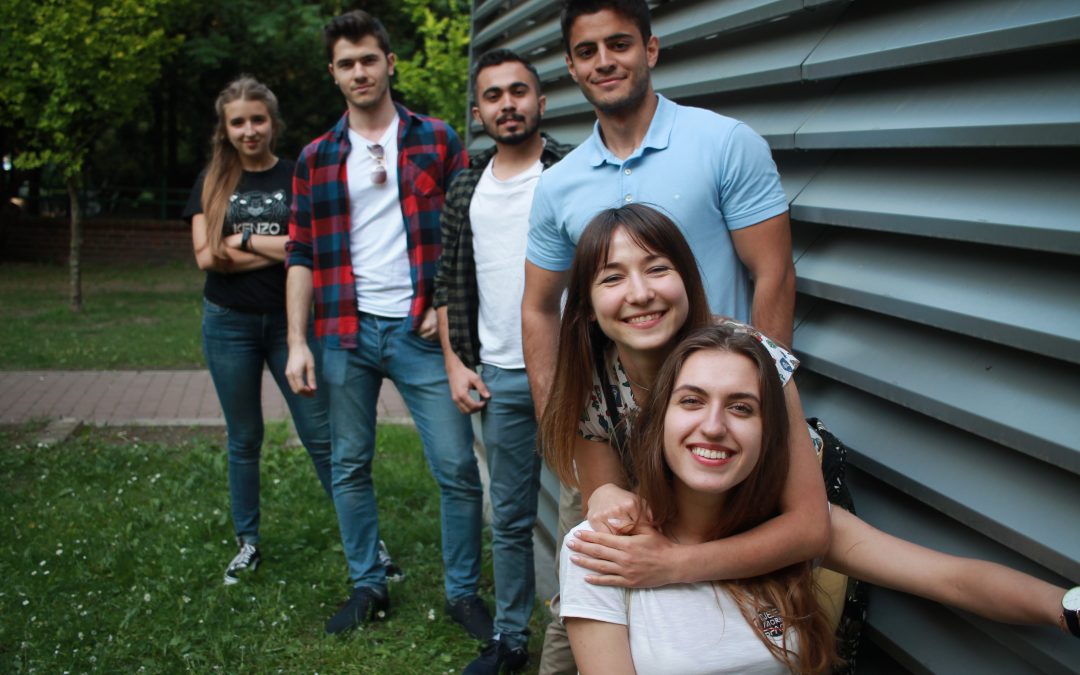
AUCA Spring 2021
American University of Central Asia is glad to announce the opening of application for Spring 2021. "American University of Central Asia includes 13,600 sq. meters teaching, administrative, collaborative and cooperative space for our Students, Faculty and Staff from...

International Students Office has been moved
Dear Students! Please be informed that the International Students Office has been moved. Our new address is Grunwaldzka str. 31 (Kmicic dormitory), rooms 1, 8, and 9. More News
